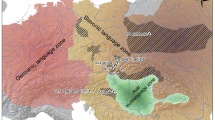Abstract
Discussions on the contrast between the Tang and Song dynasties are common in Chinese cultural and intellectual history. Will it make more sense if the continuity between Song and Ming are emphasized instead? This shift in research perspective will have multiple effects. Instead of paying exclusive attention to the elites and classics, we will focus on common knowledge, thoughts, and beliefs. As a result of this shift in the core of our research interests, the process by which ideas and cultural novelties are institutionalized, popularized, and “conventionalized” will become an important focus of historical research. Shifting our concern from the “original thinking“ of the Tang and Song to the “compromise thinking“ of the Song and Ming will cause an increase in the kinds of documents about cultural and intellectual history. Such changes in periodization and research perspective can stimulate fundamental changes in the study of Chinese cultural and intellectual history.
Similar content being viewed by others
References
Fu Sinian 傅斯年, Study of China History Periodization 中国历史分期之研究, Peking University Diurnal 北京大学日刊, Apr. 17-23, 1918, Photocopied by People’s Publishing House, 1982
Zhang Guogang 张国刚, Review and Expectation of the Study in Sui-Tang-Wudai in 20th Century 二十世纪隋唐五代史研究的回顾与展望, History Research, 2001, Vol. 2
Liu James T. C., China Turning Inward: Intellectual-Political Changes in the Early Twelfth Century. Translated by Zhao Dongmei 赵冬梅, Nanjing: Jiangsu People’s Press, 2002
Lin Qingzhang 林庆彰, Jiang Qiuhua 蒋秋华, Dan Zhu’s Research Corpus on New Spring and Autumn School 啖助新春秋学派论文集, Institute of Literature and Philosophy, Taibei Academia Sinica, 2002
Jiang Boqin 姜伯勤, Rite Change between Zhenyuan and Yuanhe of Tang: On the Rite Change and Shu-Yi of Dunhuang in Yuanhe of Tang 唐贞元元和间礼的变迁–兼论唐礼的变迁与敦煌元和书仪.In:Dunhuang Art and Religion and Ceremony Culture 敦煌艺术宗教与礼乐文明, Beijing: China Society and Science Press, 1996
Ge Zhaoguang 葛兆光, The Addition and Subtraction in Studies of Thought History 思想史, 既做加法也做减法, Reading, 2003, Vol. 1
Tillman Hoyt, From Song Thought to Modern Economic Development 从宋代思想论到近代经济发展, China Learning 中国学术, 2002, 3: 173
Pi Qingsheng 皮庆生, Prayers for Rain and Song Society 祈雨与宋代社会, Chinese Studies 华学, 2003, 6
Ge Zhaoguang 葛兆光, Knowledge, Thought, and Belief in China from the Seventh to the Nineteenth Century 七世纪至十九世纪中国的知识、思想与信仰. In: Chinese Intellectual History 中国思想史, Shanghai: Fudan University Press, 2000, Vol. 2
Guan Zhidao 맜志道, Congxian weisu yi 从先维俗议. In: Collected Rare Editions from the Imperial Palace Collection 故宫珍本丛刊, Haikou: Hainan Publishing House, 2001
Mao Peiqi 毛佩琦, Looking at Ming Chengzu Zhu Di’s Ideals on Government from the Point of View of the Shengxue Xinfa 从《圣学心法》看明成祖朱棣的治国理想, In: Mingshi Yanjiu 1, Hefei: Huangshan Shushe, 1991
Xu Zhongming 徐仲明, The Stories of Judge Bao: A Perspective on Chinese Legal Culture cm包公故事: 一个考察中国法律文化的视角, Beijing: China University of Political Science and Law Press, 2002
Yoshikō Kobayashi 小林义广, Exhortation to learning of the Song-dynasty 宋代新劝学文. In: Chinese Traditional Society and the Family 中国新传统社会と家族, Gumiko shogen 汲古新と
Cao Guoqing 曹国庆, Research on the Community Compact in the Ming Dynasty 明代乡约研究, Literature and History 文史, 1999, 1; same author, The Characteristics of the Promotion of Community Compacts during the Ming Dynasty 明代乡约推行的特点, Research on Chinese Culture 中国文化研究, 15, spring 1997
Tadao Sakai 酒井忠夫, Research on Chinese Morality Books 中国忠本新研究, Tōkyō: Kōbundō 弘文堂, 1960
Feng Youlan 冯友兰, History of Chinese Philosophy 中国哲学史, Beijing: Zhonghua Book Company, 1961, Vol. 1
Author information
Authors and Affiliations
Corresponding author
Additional information
Translated from Historical Research, Vol. 1, 2004, by Fabien Simonis
About this article
Cite this article
Ge, Z. Tang-Song or Song-Ming: The Significance of a Perspective Shift in Chinese Cultural and Intellectual History. Front. Hist. China 1, 61–83 (2006). https://doi.org/10.1007/s11462-005-0001-x
Issue Date:
DOI: https://doi.org/10.1007/s11462-005-0001-x




